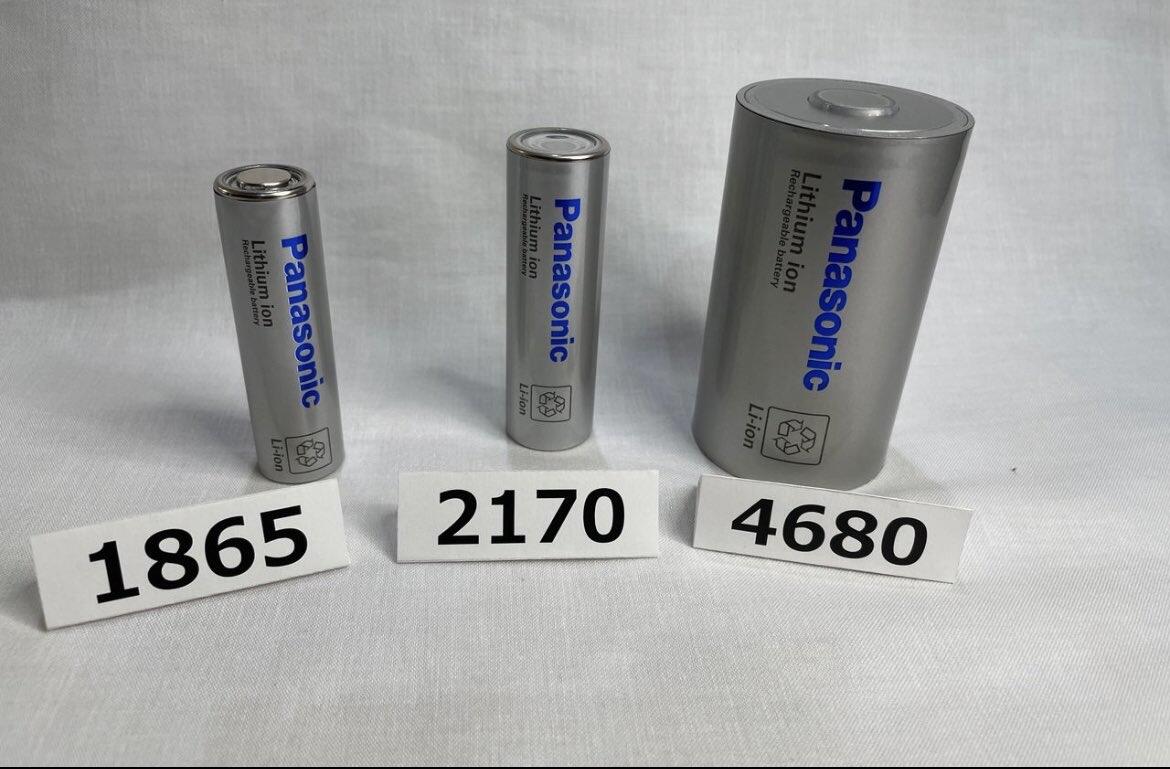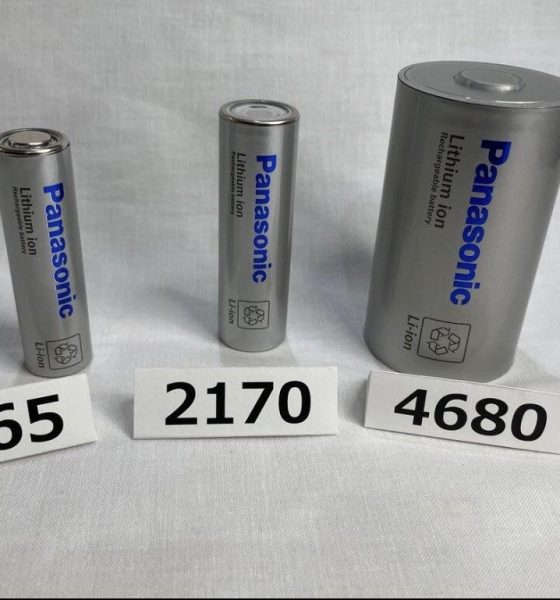Kazuo Tadanobu, the CEO of Panasonic’s energy division, recently shared some insights about the company’s upcoming 4680 batteries, which would be sold to longtime partner Tesla. Tadanobu mentioned a number of key observations about the upcoming batteries, particularly on how the 4680 cells could effectively initiate change in the transportation sector.
Panasonic has been working on its 4680 battery for about a year and a half now, and it has not been easy. According to the executive, the development of the new batteries has “taken an immense amount of stamina.” This was because creating 4680 batteries is not as simple as enlarging existing cells. Tadanobu noted that changing the entire shape of the cell took “considerable nerve,” and that Panasonic “didn’t know how they would be received” by Tesla.
Fortunately for Panasonic, Tesla has reportedly acknowledged the Japanese company’s work on its 4680 batteries. Tesla has reportedly deemed Panasonic’s 4680 cells viable, as they meet the level of performance that the American electric vehicle maker is seeking. This is a good sign for Panasonic’s 4680 program, considering that Tesla itself is also ramping the production of its in-house 4680 cells.
Tesla’s home-grown 4680 cells will likely see their initial deployment in the Made-in-Texas Model Y, which will be produced at Gigafactory Texas. So far, Tesla’s 4680 production is limited to the company’s pilot line in Kato Road, close to the Fremont Factory. That’s a facility that has the potential to ramp to 10 GWh per year, but it’s still being improved today, with the company announcing last month that it had produced its 1 millionth 4680 battery cell in January. Tesla would likely need as many 4680 batteries as it could get, considering the launch of upcoming vehicles such as the Cybertruck, Semi, and new Roadster.
Panasonic, for its part, has been sharing its battery partnership with Tesla with rivals such as LG Energy Solution and Contemporary Amperex Technology Co. (CATL), both of which are extremely aggressive. Yet despite the rising competition, such as LG Energy Solution previously stating back in 2020 that it intends to be Tesla’s primary battery supplier in the future, Panasonic believes that the quality and safety of its batteries would speak for themselves.
According to Tadanobu, Panasonic’s advantage in the market lies in its capability to “use craftsmanship to maintain safety even while raising the performance of a battery.” And after leading the development of the next-generation cells, the executive noted that Panasonic would work very hard to retain its spot. “We don’t want to lose,” the Panasonic executive said.
Overall, the executive explained that Panasonic’s hard work in developing 4680 batteries for clients like Tesla is due to the company’s belief that the cells themselves have the potential to change the world of transport. If 4680 battery cells become successful, they would have a considerable impact in lowering the cost of electric vehicles. And if this happens, electric vehicle adoption would likely increase. “We see them as a new path forward,” Tadanobu said.
*Quotes courtesy of Bloomberg, which interviewed Tadanobu in Osaka.
Don’t hesitate to contact us with news tips. Just send a message to simon@teslarati.com to give us a heads up.

Elon Musk
Elon Musk’s Boring Company opens Vegas Loop’s newest station
The Fontainebleau is the latest resort on the Las Vegas Strip to embrace the tunneling startup’s underground transportation system.
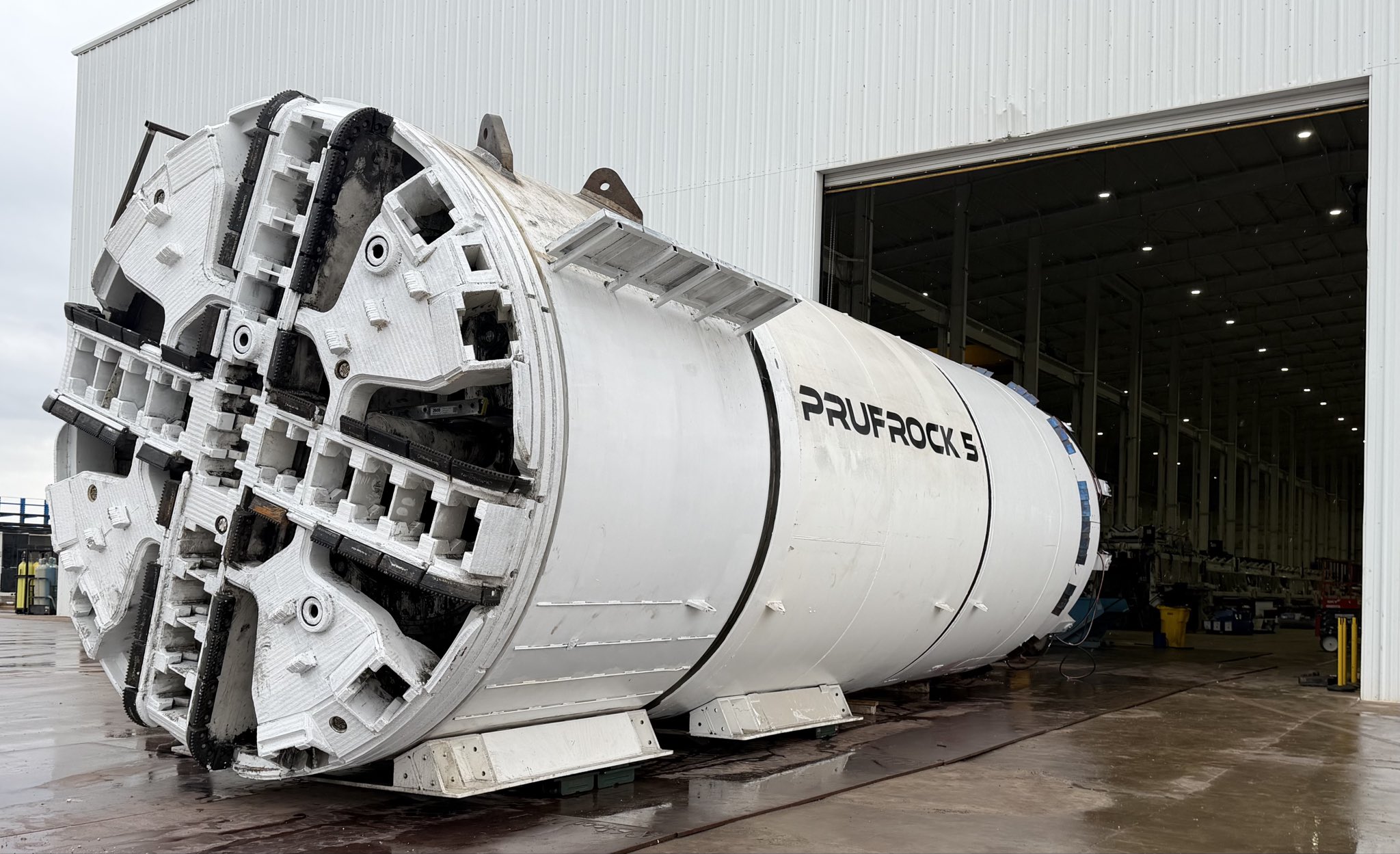
Elon Musk’s tunneling startup, The Boring Company, has welcomed its newest Vegas Loop station at the Fontainebleau Las Vegas.
The Fontainebleau is the latest resort on the Las Vegas Strip to embrace the tunneling startup’s underground transportation system.
Fontainebleau Loop station
The new Vegas Loop station is located on level V-1 of the Fontainebleau’s south valet area, as noted in a report from the Las Vegas Review-Journal. According to the resort, guests will be able to travel free of charge to the stations serving the Las Vegas Convention Center, as well as to Loop stations in Encore and Westgate.
The Fontainebleau station connects to the Riviera Station, which is located in the northwest parking lot of the convention center’s West Hall. From there, passengers will be able to access the greater Vegas Loop.
Vegas Loop expansion
In December, The Boring Company began offering Vegas Loop rides to and from Harry Reid International Airport. Those trips include a limited above-ground segment, following approval from the Nevada Transportation Authority to allow surface street travel tied to Loop operations.
Under the approval, airport rides are limited to no more than four miles of surface street travel, and each trip must include a tunnel segment. The Vegas Loop currently includes more than 10 miles of tunnels. From this number, about four miles of tunnels are operational.
The Boring Company President Steve Davis previously told the Review-Journal that the University Center Loop segment, which is currently under construction, is expected to open in the first quarter of 2026. That extension would allow Loop vehicles to travel beneath Paradise Road between the convention center and the airport, with a planned station located just north of Tropicana Avenue.
News
Tesla leases new 108k-sq ft R&D facility near Fremont Factory
The lease adds to Tesla’s presence near its primary California manufacturing hub as the company continues investing in autonomy and artificial intelligence.
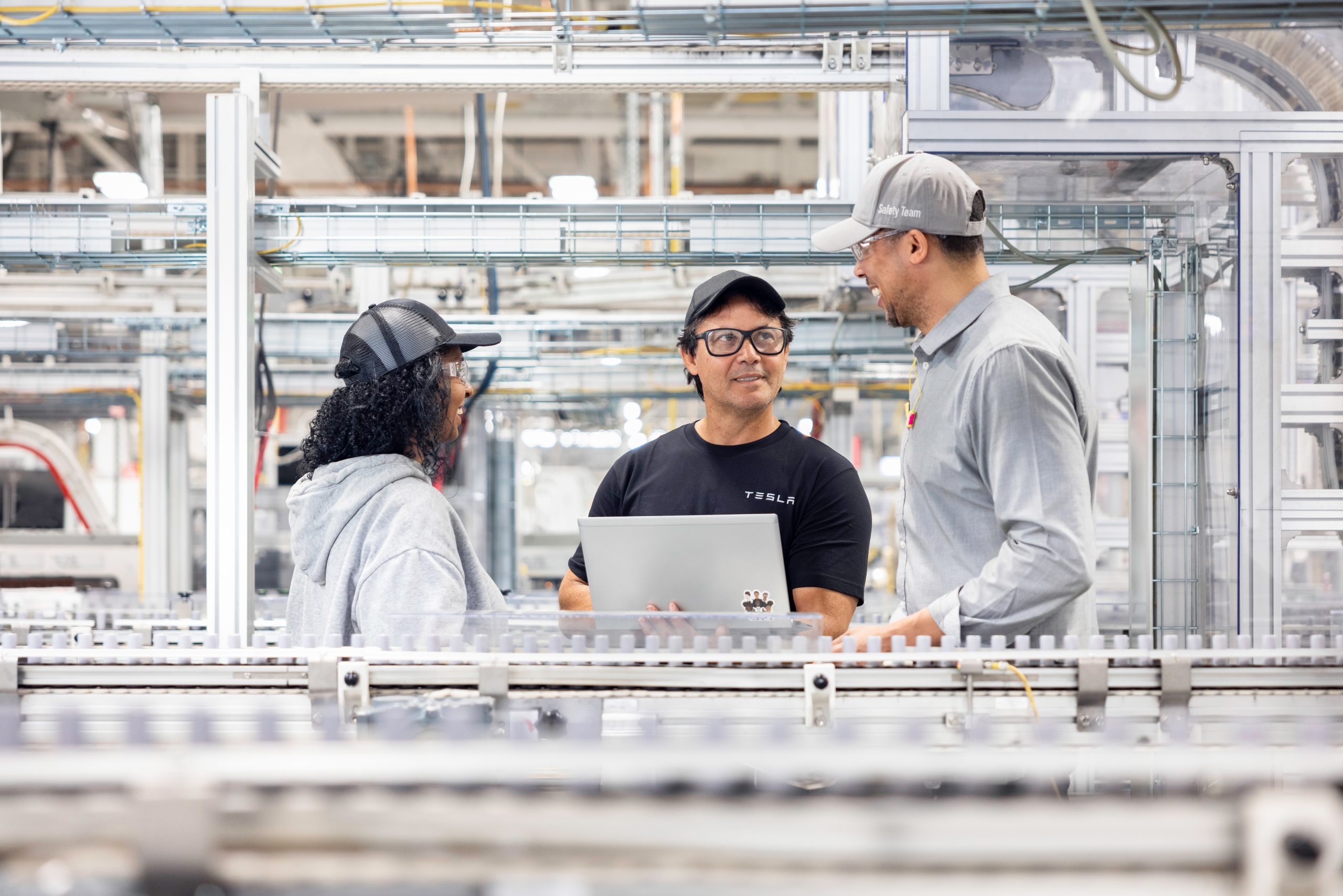
Tesla has expanded its footprint near its Fremont Factory by leasing a 108,000-square-foot R&D facility in the East Bay.
The lease adds to Tesla’s presence near its primary California manufacturing hub as the company continues investing in autonomy and artificial intelligence.
A new Fremont lease
Tesla will occupy the entire building at 45401 Research Ave. in Fremont, as per real estate services firm Colliers. The transaction stands as the second-largest R&D lease of the fourth quarter, trailing only a roughly 115,000-square-foot transaction by Figure AI in San Jose.
As noted in a Silicon Valley Business Journal report, Tesla’s new Fremont lease was completed with landlord Lincoln Property Co., which owns the facility. Colliers stated that Tesla’s Fremont expansion reflects continued demand from established technology companies that are seeking space for engineering, testing, and specialized manufacturing.
Tesla has not disclosed which of its business units will be occupying the building, though Colliers has described the property as suitable for office and R&D functions. Tesla has not issued a comment about its new Fremont lease as of writing.
AI investments
Silicon Valley remains a key region for automakers as vehicles increasingly rely on software, artificial intelligence, and advanced electronics. Erin Keating, senior director of economics and industry insights at Cox Automotive, has stated that Tesla is among the most aggressive auto companies when it comes to software-driven vehicle development.
Other automakers have also expanded their presence in the area. Rivian operates an autonomy and core technology hub in Palo Alto, while GM maintains an AI center of excellence in Mountain View. Toyota is also relocating its software and autonomy unit to a newly upgraded property in Santa Clara.
Despite these expansions, Colliers has noted that Silicon Valley posted nearly 444,000 square feet of net occupancy losses in Q4 2025, pushing overall vacancy to 11.2%.
News
Tesla winter weather test: How long does it take to melt 8 inches of snow?
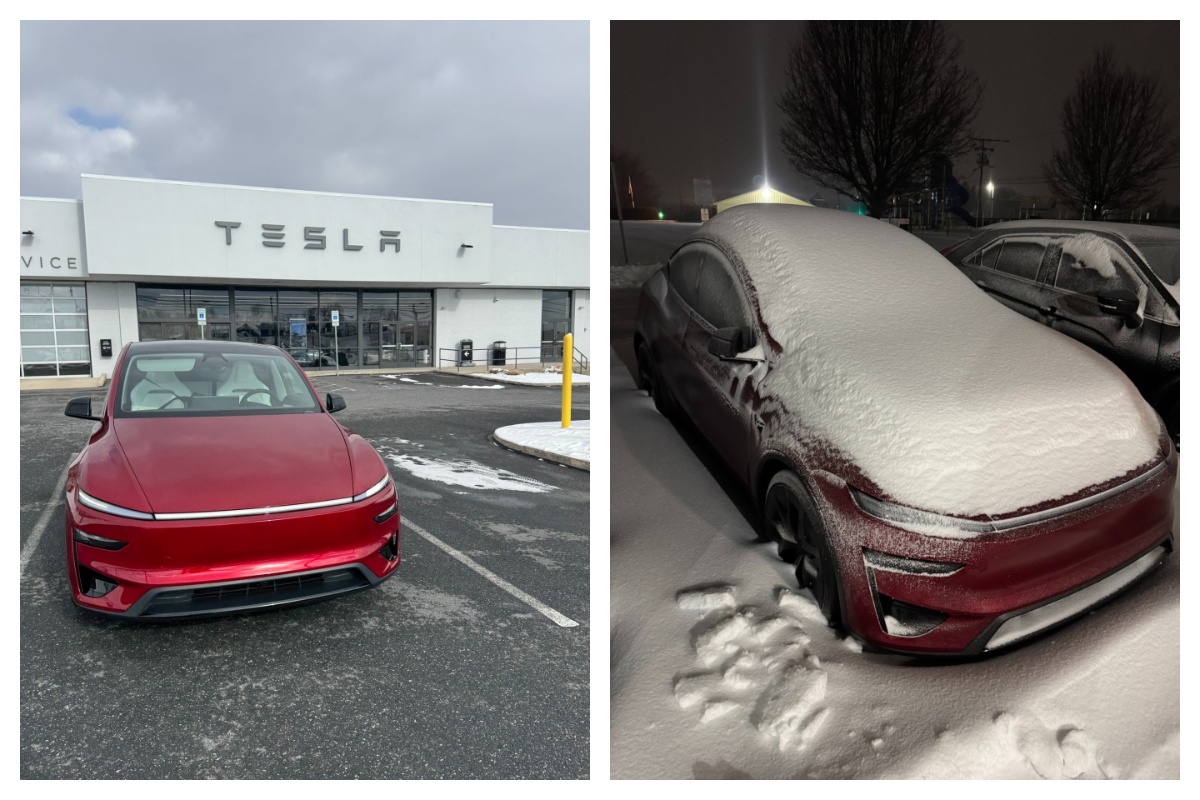
In Pennsylvania, we got between 10 and 12 inches of snow over the weekend as a nasty Winter storm ripped through a large portion of the country, bringing snow to some areas and nasty ice storms to others.
I have had a Model Y Performance for the week courtesy of Tesla, which got the car to me last Monday. Today was my last full day with it before I take it back to my local showroom, and with all the accumulation on it, I decided to run a cool little experiment: How long would it take for Tesla’s Defrost feature to melt 8 inches of snow?
Tesla’s Defrost feature is one of the best and most underrated that the car has in its arsenal. While every car out there has a defrost setting, Tesla’s can be activated through the Smartphone App and is one of the better-performing systems in my opinion.
It has come in handy a lot through the Fall and Winter, helping clear up my windshield more efficiently while also clearing up more of the front glass than other cars I’ve owned.
The test was simple: don’t touch any of the ice or snow with my ice scraper, and let the car do all the work, no matter how long it took. Of course, it would be quicker to just clear the ice off manually, but I really wanted to see how long it would take.
Tesla Model Y heat pump takes on Model S resistive heating in defrosting showdown
Observations
I started this test at around 10:30 a.m. It was still pretty cloudy and cold out, and I knew the latter portion of the test would get some help from the Sun as it was expected to come out around noon, maybe a little bit after.
I cranked it up and set my iPhone up on a tripod, and activated the Time Lapse feature in the Camera settings.
The rest of the test was sitting and waiting.
It didn’t take long to see some difference. In fact, by the 20-minute mark, there was some notable melting of snow and ice along the sides of the windshield near the A Pillar.
However, this test was not one that was “efficient” in any manner; it took about three hours and 40 minutes to get the snow to a point where I would feel comfortable driving out in public. In no way would I do this normally; I simply wanted to see how it would do with a massive accumulation of snow.
It did well, but in the future, I’ll stick to clearing it off manually and using the Defrost setting for clearing up some ice before the gym in the morning.
Check out the video of the test below:
❄️ How long will it take for the Tesla Model Y Performance to defrost and melt ONE FOOT of snow after a blizzard?
Let’s find out: pic.twitter.com/Zmfeveap1x
— TESLARATI (@Teslarati) January 26, 2026
